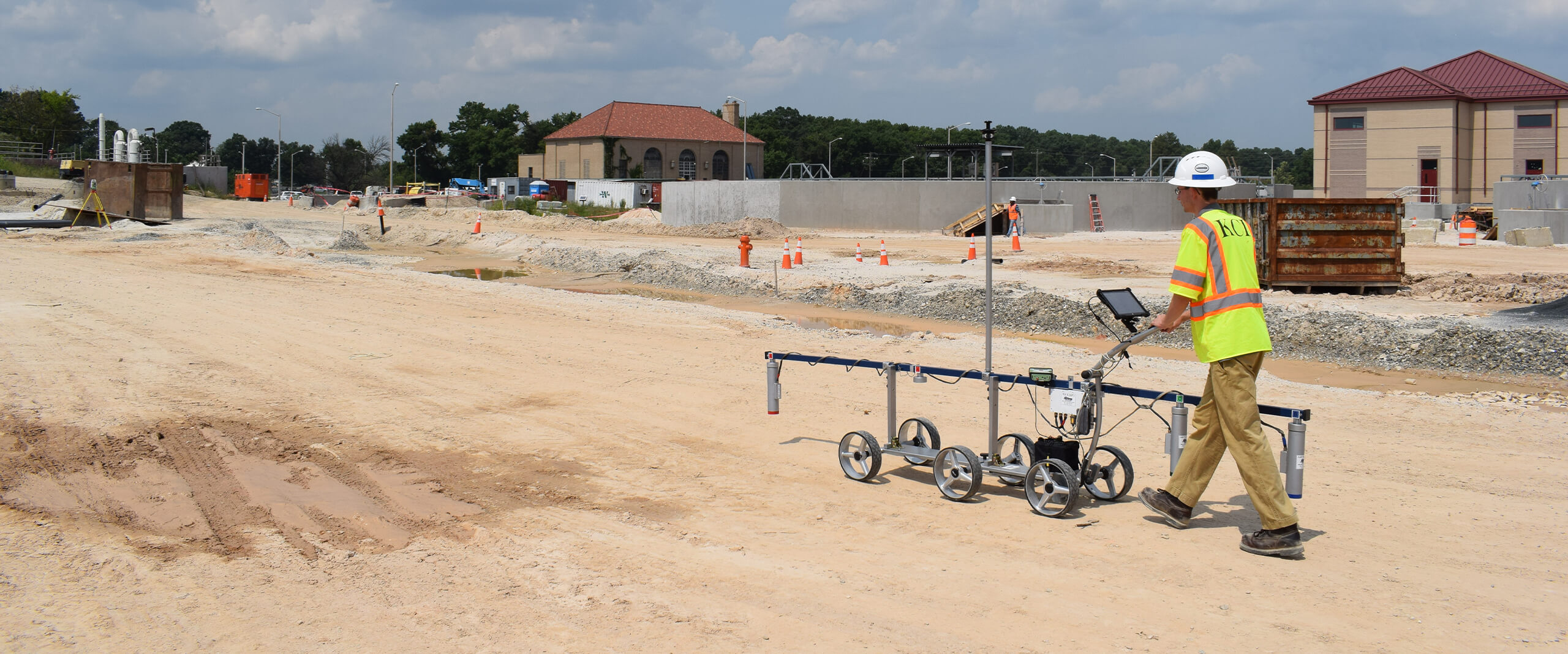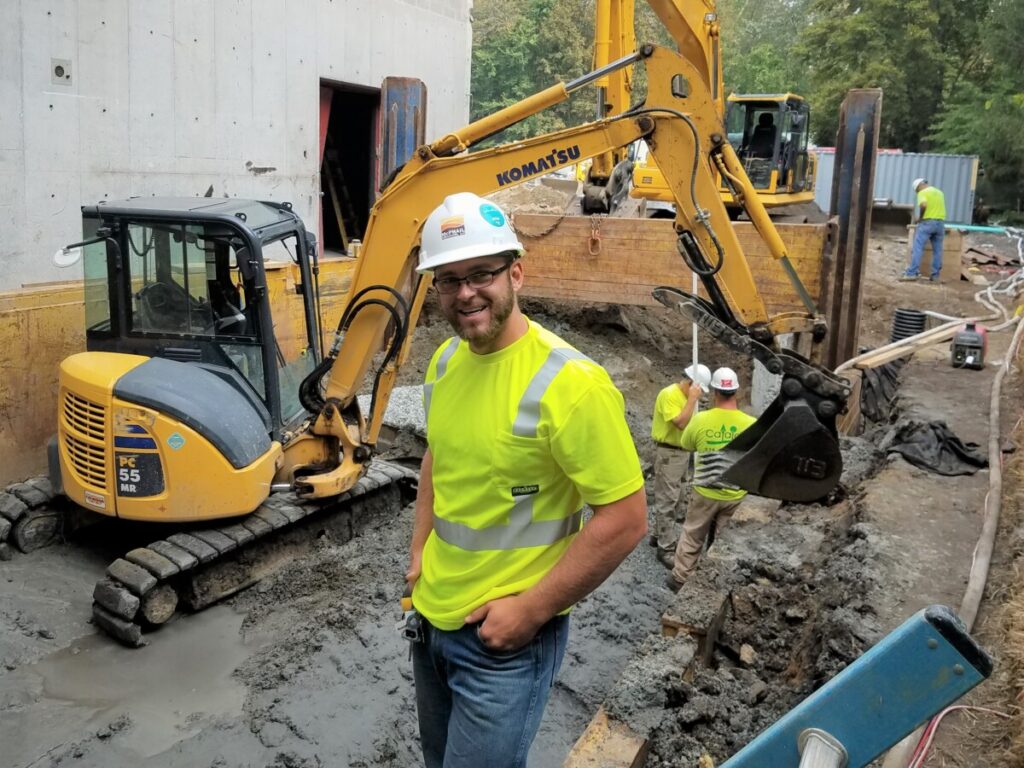Important Top Qualities of Effective Civil Consulting Engineers
Important Top Qualities of Effective Civil Consulting Engineers
Blog Article
An In-depth Introduction of the Key Duties of Geotechnical Designers in Website Characterization and Ground Renovation Methods for Design Solutions
Geotechnical engineers are important to the successful execution of engineering projects, tasked with the crucial obligations of website characterization and the application of ground enhancement methods. Their job includes a thorough analysis of subsurface conditions, employing different testing approaches to recognize soil and rock residential properties.
Duty of Geotechnical Designers
Geotechnical engineers play a pivotal function in the design and building and construction of framework by analyzing the actions of dirt and rock underneath the surface - civil consulting engineers. Their duties incorporate assessing subsurface conditions to educate style decisions that make certain structural security and security. By conducting thorough analyses of dirt properties, including shear toughness, compressibility, and leaks in the structure, geotechnical designers supply crucial data that influences the option of suitable construction materials and strategies
In enhancement to evaluating soil mechanics, geotechnical engineers are entrusted with determining potential dangers such as landslides, sinkholes, and ground settlements. Their competence helps minimize dangers linked with these geotechnical sensations, thus securing both the atmosphere and public safety. They also collaborate carefully with various other design disciplines, guaranteeing that geotechnical factors to consider are integrated into general project style.
Moreover, geotechnical designers participate in the examination of existing frameworks, providing recommendations for retrofitting and repairs when needed. Their extensive understanding of soil-structure interaction is crucial for the growth of lasting infrastructure services. On the whole, the role of geotechnical engineers is essential to the effective understanding of construction projects, ensuring they are safe, sturdy, and certified with governing requirements.

Website Characterization Processes
Reliable site characterization procedures are necessary for recognizing the subsurface conditions that affect project layout and implementation. Geotechnical designers use a methodical approach to gather, review, and interpret information relating to dirt, groundwater, and rock attributes. This procedure begins with a detailed testimonial of existing literature and archaeological site data, providing understandings right into previous website conditions and possible challenges.

Data analysis complies with fieldwork, where designers use geostatistical approaches to interpret findings and create geological versions. Through diligent website characterization, geotechnical engineers lay the foundation for successful job execution, decreasing unforeseen issues and optimizing resource appropriation.
Soil and Rock Screening Methods
While understanding subsurface problems is important, the selection of ideal soil and rock screening methods is equally vital for exact evaluation and style. Geotechnical designers utilize a range of screening techniques to assess the mechanical and physical properties of dirt and rock materials.
Laboratory tests, such as Atterberg limits, grain size evaluation, and unconfined compressive stamina tests, give necessary information on soil habits under different wetness conditions and loading situations. These examinations assist establish dirt category and predict negotiation or shear stamina attributes vital for structure layout.
In-situ testing methods, including Requirement Penetration Tests (SPT), Cone Infiltration Examinations (CPT), and pressure meter tests, enable designers to gather data directly from the ground. These approaches provide important understandings right into the dirt's thickness, uniformity, and stratification without the need for comprehensive sampling.
Rock testing usually involves core tasting and laboratory evaluation to analyze homes like uniaxial compressive toughness and rock top quality designation (RQD) With each other, these dirt and rock testing methods enable geotechnical engineers to make enlightened choices regarding site-specific challenges, ensuring the safety and stability of design services.
Ground Enhancement Strategies
Ground improvement methods are crucial for boosting the engineering residential or commercial properties of soil, thereby enhancing its load-bearing capacity and decreasing negotiation. These techniques are crucial in dealing with obstacles presented by weak or problematic site here dirts, which can considerably impact the stability and sturdiness of structures.
Numerous ground improvement methods are utilized, including compaction, grouting, and dirt stablizing. Compaction entails enhancing the thickness of dirt through mechanical ways, which improves its shear strength and minimizes compressibility. Grouting, on the various other hand, entails injecting a fluid product right into the ground to load gaps and boost soil cohesion. This technique is especially effective for treating loosened sands or broken rock.
Dirt stablizing encompasses a variety of approaches, from chemical additives to mechanical treatments, intended at boosting the dirt's resistance to erosion and deformation. Strategies such as lime stablizing or cement blending alter the buildings of the soil at a bit degree, improving its general efficiency.
Value of Geotechnical Evaluations
Geotechnical analyses play a crucial function in the preparation and design of engineering tasks, as they supply vital details regarding the subsurface conditions. Understanding dirt residential properties, rock formations, groundwater degrees, and prospective geohazards is important for ensuring the security and safety and security of frameworks. These analyses make it possible for designers to make educated decisions relating to site selection, layout specifications, and construction methods.
The value of geotechnical evaluations extends beyond first job phases; they are instrumental in threat administration and price effectiveness. By recognizing potential issues early, such as soil negotiation, slope instability, or too much groundwater, engineers can create proper reduction techniques, reducing the possibility of architectural failings and expensive hold-ups. These analyses support compliance with governing needs and enhance the sustainability of design techniques.

Verdict
In final thought, geotechnical designers are essential to making certain the security and stability of design tasks via comprehensive site characterization and ground renovation methods. civil consulting engineers. Their systematic technique to evaluating subsurface conditions, integrated with their recommendations for efficient ground alteration, dramatically improves dirt properties and load-bearing capability. The proficiency of geotechnical designers not only promotes educated job preparation however also guarantees conformity with laws and fosters reliable communication among stakeholders, inevitably adding to successful design outcomes
Geotechnical engineers play an essential function in the layout and building of framework by evaluating the habits of soil and rock underneath the learn the facts here now surface. By conducting comprehensive evaluations of soil buildings, consisting of shear stamina, compressibility, and permeability, geotechnical designers give crucial data that influences the option of appropriate building materials and methods.
In enhancement to evaluating soil mechanics, article geotechnical engineers are entrusted with determining prospective risks such as landslides, sinkholes, and ground settlements. Geotechnical engineers utilize a methodical method to gather, evaluate, and translate data relating to soil, rock, and groundwater qualities. By identifying possible concerns early, such as dirt negotiation, slope instability, or too much groundwater, designers can design ideal reduction techniques, decreasing the possibility of structural failings and costly hold-ups.
Report this page